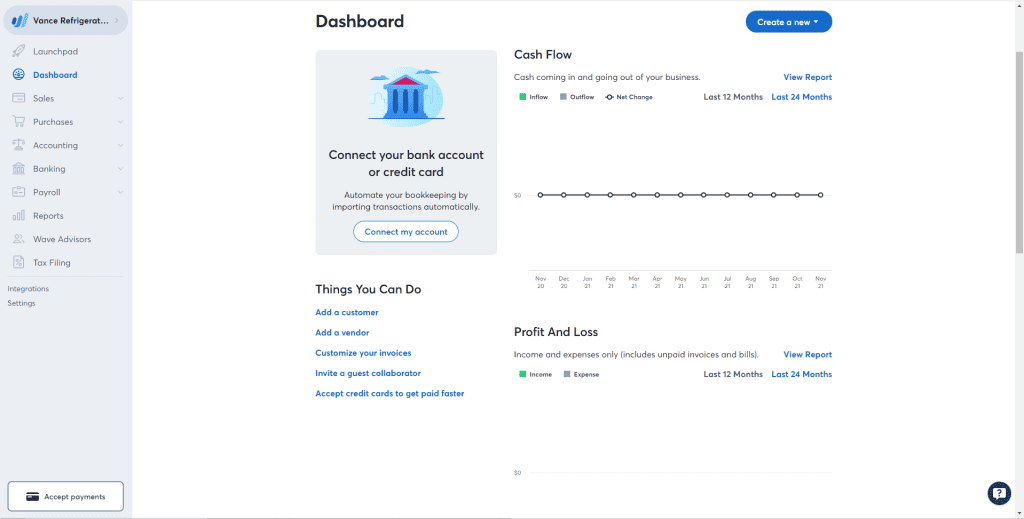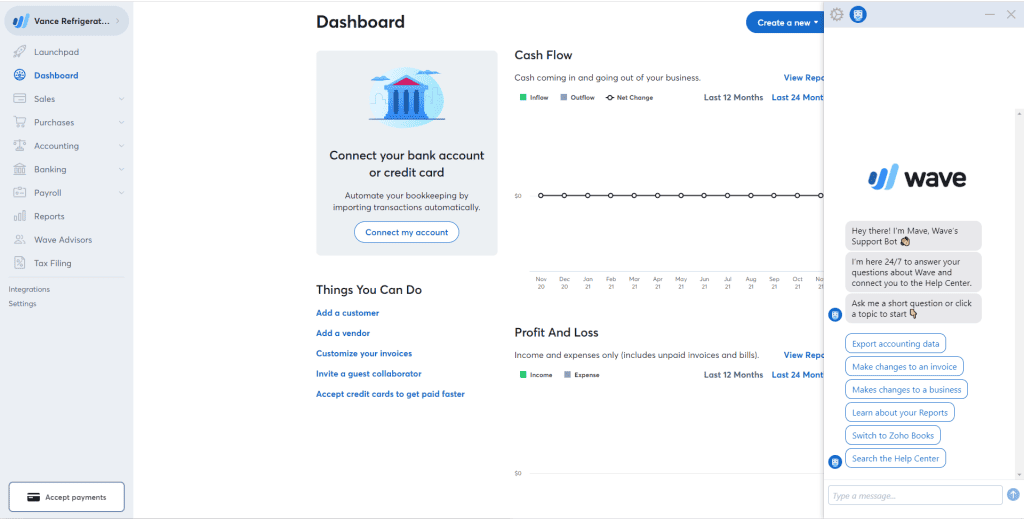When assessing the benefits of an accounting system, the major points of consideration are suitability, usability, functionality, maintenance and support, and security. Also, when talking about the advantages of a system, it has to be in comparison to at least one other existing system or method in use.
Until the advent of the personal computer, accounting was a manual process, with entries being hand written in journals, pads, ledgers and books, the aim being to keep an account of all business transactions. So it is only natural that any comparison be made at least against this tried and tested, older (yet still in use) method, commonly known as manual accounting.
Computerized Accounting Systems Advantages
Another method of doing accounting, which while it can be referred to as computerized accounting, does not really qualify as a computerized accounting system in its truest sense, is the use of spreadsheets. And this article will also be comparing computerized accounting systems against the simpler, spreadsheet accounting.
Suitability
Today’s computerized accounting systems come in all shapes and sizes, suitable for businesses ranging from individual freelancers and microbusinesses (or microenterprises), right up to large enterprises and corporations. Interestingly, according to the U.S. Census Bureau, of 28 million US companies tracked, microenterprises made up 95%.
Obviously, a freelancer is not going to need the full range of features of an accounting system that is designed for a company with several hundred employees, just as a simple accounting system for a small business will not cover the requirements of a large corporation.

Regardless of size, most businesses not only need to perform basic bookkeeping, but also have other requirements, such as payroll management, inventory tracking, preparing estimates and proposals, sending out payment reminders, handling recurring invoices, and doing trade in multiple currencies, to name a few.
Admittedly, while some of the above aren’t really part of an accountant’s duties, accounting packages need to be able to (even at a basic level), smoothly and seamlessly integrate with other software systems that offer most, if not all, of these functionalities.
In fact, these have become such a basic component of a business today, that most computerized accounting systems, include them as part of their package offering, either as add-ons and extensions, or by building in the ability of the accounting system to integrate with 3rd party systems.
So, one of the advantages of computerized accounting systems, is that they can scale and be adapted to fit any size business, while at the same time going beyond the needs of basic accounting. A spreadsheet based accounting setup, that is really only suitable for individuals or businesses with few requirements, could not hope to match a computerized accounting system, either in its ability to (easily) scale, or offer a similar range of added functionality.
Usability & Security
Like all systems today, networking and remote access are taken for granted. But a network accessible system must be able to ensure the integrity and security of the underlying data it is providing. Computerized accounting systems employ some type of built-in security framework that allows only authorized users to access the system.
At the same time, they allow several users to work on the system simultaneously, something that isn’t possible with a manual accounting system, and only with very limited capabilities under a spreadsheet accounting system.
Remote access provides a degree of convenience and helps increase efficiency. It not only benefits those working from a remote company office, or from home, as has become the norm under today’s conditions, but also allows managers and business owners on the road, to have access to crucial business details and financial reports.
One other, major advantage offered by computerized accounting systems, especially over manual accounting methods, is data integrity. Unless erroneous data is entered into the system, a computerized system will never make errors in its calculations. This was always one of the major drawbacks of manual accounting systems.
While there is a learning curve involved when becoming familiar with any accounting software, in the main, most computerized accounting systems use an intuitive design approach, making navigating through the menus and entering information into the system, as efficient and effortless for the user as possible.
Considering the depth and volume of functionality packed into a computerized accounting system, it is only natural that users initially feel daunted. But once learnt, accessing the various components of the system becomes second nature and completing any number of tasks extremely productive.
Functionality
Today’s computerized accounting systems cover all the basic accounting functions, and then some. In contrast to a manual accounting system, employing double entry bookkeeping, where a transaction has to be entered by hand into both a journal and a ledger, entering transactions in a computerized accounting system need only be done once, the software taking care of propagation to the other parts of the system.
Most systems also provide for automatic syncing with business bank accounts and credit cards, or capturing sales transactions from point of sale (POS) systems. This makes the system more efficient and takes up less user time, allowing business owners to concentrate on further developing their business.
Another key feature of computerized accounting systems is their report generation. Almost any kind of report can be produced, instantly, as and when required. This gives business owners real-time financial information, allowing them to make better business decisions.
And as already outlined earlier, today’s computerized accounting systems offer features and functions well beyond the needs of traditional accounting. This added functionality makes computerized accounting a very versatile and powerful tool.
Maintenance and Support
Maintenance is a vital component if a system is to be kept running problem free. It involves updating and upgrading, which help keep up with new developments, as well as resolving possible bugs and patching security holes.
There’s also nothing worse for business owners, than having to deal with technical (and non-technical) issues that are beyond their capabilities, not to mention downtime that can adversely affect business functioning. Backups are another headache. What happens if there’s a data (hard disk) failure, or if the operating system crashes.

Most computerized accounting systems are available under a subscription service, which guarantees they are always updated to the latest version. Subscriptions also come with a level of support for those rare times when something could go wrong.
Help with the software is just a phone call away, while some subscriptions also offer training. And backups and restores are taken care of, automatically.
Conclusion
Computerized accounting systems reduce the amount of time epxended carrying out manual tasks (time that can be better spent on generating sales and revenue for the business), by automating many of the processes involved.
They are also a good deal faster than a manual accounting system, as well as more accurate and reliable. And when the need arises, they can be scaled to meet the demands of any size business, small or large.
To date, one of the main reasons many business owners have opted for a manual or spreadsheet based accounting system, has been the cost of computerized accounting software. However, that no longer holds true.
Subscription plans that adequately cover the needs of a small business or freelancer are available for less than $10 per month.
And finally, the range of reports available from computerized accounting systems is unparalleled. Track key performance indicators (KPIs), monitor project profitability, run customized reports, all at the press of a key.
All of these and many more, have transformed accounting from a simple set of rules and methodologies that keep a record of business transactions, into a sophisticated system that aids in the smooth running of the business, monitors its performance, and helps business owners make informed decisions.

